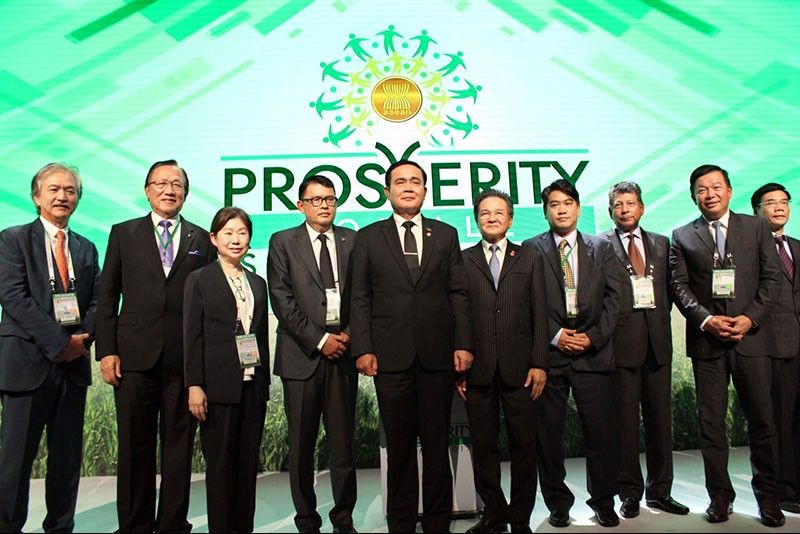Asean business council eyes more inclusive growth

MANILA, Philippines - The Association of Southeast Asian Nations (ASEAN) Business Advisory Council is finding ways to improve the region’s economy, making it more inclusive for everyone.
During a daylong Prosperity for All Summit last Friday, ASEAN-BAC chairman Joey Concepcion said the 10-member group should all work together to prepare for “the next big leap” toward the future with an emphasis on empowering the micro, small and medium enterprises (MSMEs) – the sector that accounts for 90 percent of the economy in most ASEAN countries.
Among the ways that this can be done, said Malaysian Prime Minister Najib Razak in his keynote speech, are by bringing down non-tariff barriers and pulling tariffs down to zero “for the region’s economy to grow to $9.2 trillion by 2050.”
“We have to bring down further the trade tariffs which still exist. WTO (World Trade Organization) figures show average tariffs in ASEAN were around four percent in 2015. The work to bring them down to zero must be pursued vigorously,” Razak stressed.
“Our economies are growing faster than most of the rest of the world, and it is expected that by 2050 the ASEAN economy will amount to over $9.2 trillion, making it the fourth largest in the world. Again, there are other predictions that are even more optimistic, suggesting ASEAN could reach the number four position by 2030 – a mere 13 years from now,” he added.
Razak noted that between 1975 and 2014, the ASEAN economy multiplied 28 times to $2.5 trillion from only $87.2 billion.
Despite this, he admitted that some challenges, such as the integration of all ASEAN economies, remain.
“If you have a growing economy, then only you can distribute prosperity and wealth. We want this prosperity to be shared by all. Without economic success, there is nothing to be shared,” Razak said.
To improve intra-ASEAN trade, he said there should be a 20 percent reduction in fixed trade costs and that all member states must work to bring down non-tariff barriers.
Thai Prime Minister Prayut Chan-o-cha said in a separate speech that there must be a concerted effort to promote MSMEs, including the establishment of cross-border logistics platform to boost e-commerce.
“Logistics management plays a pivotal role in promoting e-commerce and necessitates that ASEAN member states join hands in the development of cross-border logistics systems,” Prayut stressed.
Thailand, which is widely known for empowering MSMEs, can help the rest of ASEAN by sharing its best practices, he added. It has five million MSMEs, which employ 10 million people.
Prayut emphasized ASEAN’s agreement to “leave no one behind.”
ASEAN-BAC launched its Mentorship for Entrepreneurs Network, or AMEN, which aims, with the help of big businesses, to expose MSMEs to greater opportunities, better management methods and sustainable growth through linkages with regional and global supply chains.
Filipino tycoons, including Tessie Sy-Coson, Hans Sy, Injap Sia, Alfred Ty and Michael Tan, expressed their support for the ASEAN-BAC’s call for inclusive growth or prosperity for all.
Meanwhile, former five-time House speaker Jose de Venecia Jr. said the ASEAN summit has provided the incentive for an Asia-wide support for Duterte’s anti-drug campaign in the Philippines.
He pointed out in Sunday’s Bangus Festival Kalutan ed Dalan, where thousands of bangus (milkfish) were grilled along the highway, that the drug problem the Philippines is facing is the same trouble that Asia and the rest of the world faces.
“We should work with the UN, the US, the ASEAN and the South Asian Association for Regional Cooperation for ASEAN to damp down the Southeast Asian drug network along the banks of Mekong river,” De Venecia said.
He is proposing a global anti-narcotic summit either in Manila or Mexico City to support Duterte’s anti-drug campaign “because it is not just a national problem, it’s an Asian problem, it’s a global problem.” – With Eva Visperas
- Latest
- Trending




























